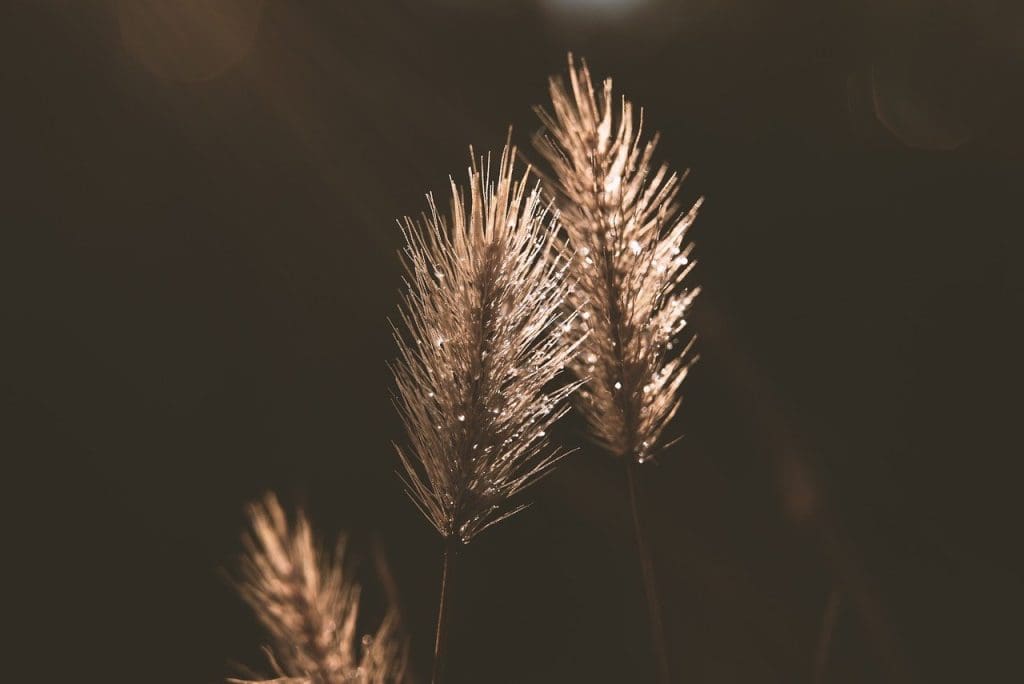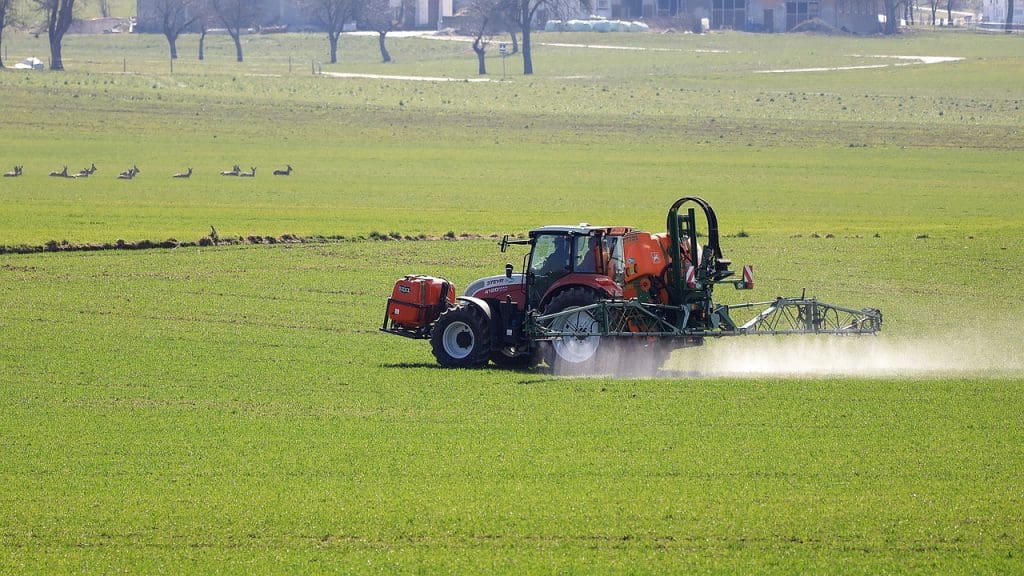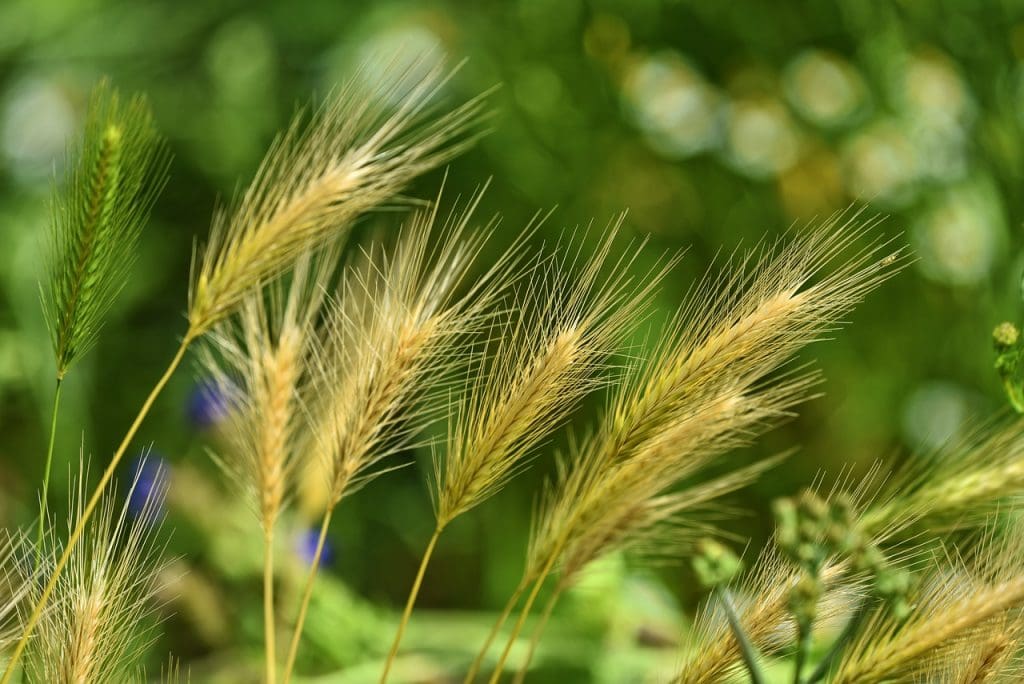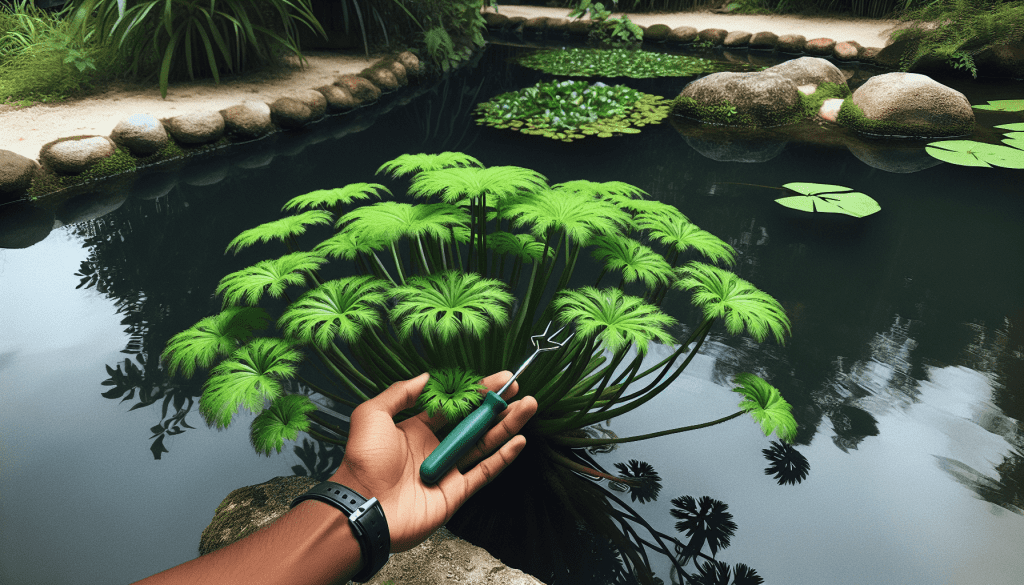In “How To Effectively Control Alligator Weed In Your Garden Or Pond,” you’ll discover practical and proven strategies to tackle this invasive plant and reclaim your green space. The article provides step-by-step guidance on identifying alligator weed, understanding its growth patterns, and implementing control methods that range from manual removal to the use of herbicides. By the end of your read, you’ll feel confident and equipped to manage alligator weed, ensuring a healthier and more vibrant environment for your plants and aquatic life. Have you ever found yourself frustrated with the relentless spread of alligator weed in your garden or pond? This aggressive and invasive species can quickly take over, making it difficult to manage your outdoor space effectively. But worry not—this guide will provide you with all the detailed information you need to effectively control alligator weed.
What is Alligator Weed?
Alligator weed (Alternanthera philoxeroides) is a perennial plant native to South America, notorious for its invasive capabilities. It typically thrives in wet environments, such as ponds, rivers, and swampy areas, but can also invade terrestrial habitats like gardens and agricultural fields. Its dense mats can outcompete native vegetation, reducing biodiversity and causing ecological imbalance.
Identifying Alligator Weed
Before you can control alligator weed, you need to be able to identify it. Here are some key characteristics:
| Feature | Description |
|---|---|
| Leaves | Elliptic to lance-shaped, approximately 2-7cm long, with a waxy texture. |
| Stems | Hollow and buoyant, allowing it to float on water bodies. |
| Flowers | Small, white, and grow in clusters at the end of stems. |
| Root System | Extensive and resilient, capable of regenerating from fragments. |
Recognizing these traits will help you distinguish alligator weed from other aquatic plants, ensuring that your control efforts are properly targeted.
Why Control Alligator Weed?
You might wonder why it’s important to control alligator weed in the first place. Here are some compelling reasons:
- Environmental Impact: Alligator weed can severely disrupt local ecosystems by outcompeting native plants and reducing biodiversity.
- Economic Cost: It can cause significant damage to agricultural lands, resulting in lower crop yields. Managing it also requires financial resources.
- Health Concerns: Dense mats of alligator weed can create ideal breeding grounds for mosquitoes, which can spread diseases.
Considering these impacts, controlling alligator weed is crucial for maintaining the health of your garden, pond, and the surrounding environment.

Methods of Controlling Alligator Weed
Controlling alligator weed requires a multifaceted approach. No single method is effective on its own, but a combination of strategies can yield better results.
Manual Removal
Manual removal involves physically pulling out the weed by hand or using tools.
Advantages:
- Immediate results.
- Environmentally friendly.
Disadvantages:
- Labor-intensive.
- Root fragments left behind can regenerate.
Chemical Control
Herbicides can be effective but should be used with caution to minimize ecological impact.
Common Herbicides:
- Glyphosate: A non-selective herbicide effective against alligator weed.
- Imazapyr: Particularly effective for aquatic environments.
Application Tips:
- Apply during active growth periods for maximum effectiveness.
- Follow the manufacturer’s instructions carefully.
Biological Control
Biological control involves using natural predators or pathogens to manage the weed.
Examples:
- Flea Beetles (Agasicles hygrophila): These beetles feed on alligator weed, weakening it.
- Alligator Weed Thrips (Amynothrips andersoni): These insects damage the plant’s foliage.
Integrated Weed Management (IWM)
IWM is a holistic approach that combines various control methods to manage alligator weed effectively. By integrating manual, chemical, and biological tactics, you can achieve better long-term control while minimizing negative impacts on the environment.
Preventative Measures
Preventing the spread of alligator weed is equally important as controlling existing infestations. Here are some preventative measures you can adopt:
Regular Monitoring
Regular monitoring helps you detect the weed early, making it easier to control. Conduct periodic inspections, especially after heavy rains or floods, which can facilitate the spread of the weed.
Clean Equipment
If you use tools or equipment in multiple areas, make sure to clean them thoroughly to prevent transporting weed fragments to new locations.
Educate Others
Spread awareness about the impacts of alligator weed and preventative measures among your community or neighbors. Collective efforts can more effectively curb its spread.
Use Proper Soil and Plants
When landscaping or planting around your garden or pond, ensure that the soil and plants are free from alligator weed contaminants.

Case Studies of Successful Control
Let’s look at some real-life examples of how people have successfully controlled alligator weed.
Case Study 1: A Pond in Florida
Situation:
A small private pond in Florida was heavily infested with alligator weed.
Method:
A combination of manual removal and targeted herbicide application.
Outcome:
After consistent effort over six months, the alligator weed was significantly reduced, allowing native species to reestablish.
Case Study 2: Agricultural Field in Australia
Situation:
A farm in Australia faced decreasing crop yields due to alligator weed infestation.
Method:
An integrated approach using biological control (flea beetles) and chemical treatments.
Outcome:
Crop yields improved, and the weed infestation was managed to a controllable level.
Safety and Environmental Considerations
While controlling alligator weed, it’s crucial to consider safety and environmental impacts.
Personal Safety
- Protective Gear: Always wear gloves, long sleeves, and protective eyewear when handling herbicides.
- Proper Handling: Follow safety instructions on the herbicide label.
Environmental Impact
- Selective Herbicides: Use herbicides that target alligator weed specifically to minimize harm to native plants.
- Biological Control: Ensure that introduced species for biological control do not become invasive themselves.

Monitoring and Maintenance
Controlling alligator weed is not a one-time task; it requires ongoing monitoring and maintenance. Regularly inspect your garden or pond for any signs of re-infestation and take prompt action if needed.
Seasonal Checks
Conduct thorough inspections at the beginning and end of each growing season. This will help you catch any new growth early, when it is easier to manage.
Record Keeping
Maintain a log of your control activities, including dates, methods used, and outcomes. This will help you track progress and identify the most effective strategies over time.
Future Research and Innovations
Research into more sustainable and effective control methods is ongoing. Some promising areas include:
- Genetic Research: Exploring genetic modifications to create herbicide-resistant native plants, allowing for more targeted herbicide applications.
- Advanced Biological Controls: Developing biocontrol agents that specifically target alligator weed without affecting other species.
Keeping abreast of these advancements can provide you with new tools and strategies for managing alligator weed more effectively.

Final Thoughts
Controlling alligator weed in your garden or pond is a challenging but achievable task. By understanding the weed’s characteristics and leveraging a comprehensive approach that combines manual, chemical, and biological methods, you can effectively manage this invasive species. Remember, prevention and ongoing maintenance are key to long-term success. So, roll up your sleeves, and take control of your outdoor space today!
Feel free to share your experiences and any tips you might have learned along the way—every bit of knowledge helps in the fight against alligator weed. Happy gardening!
